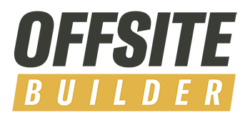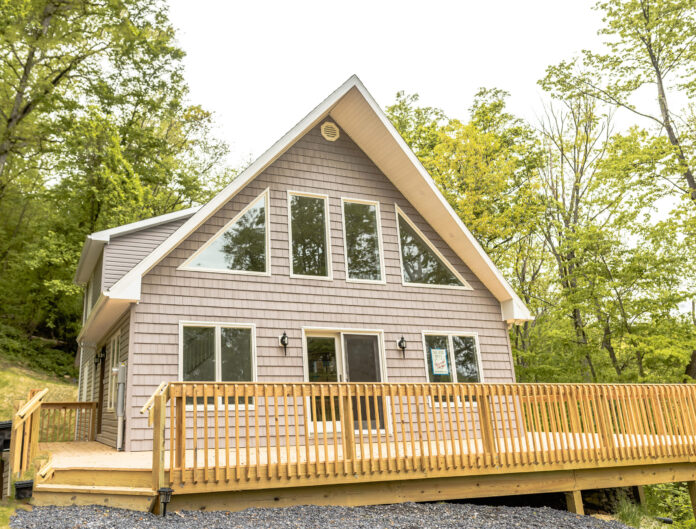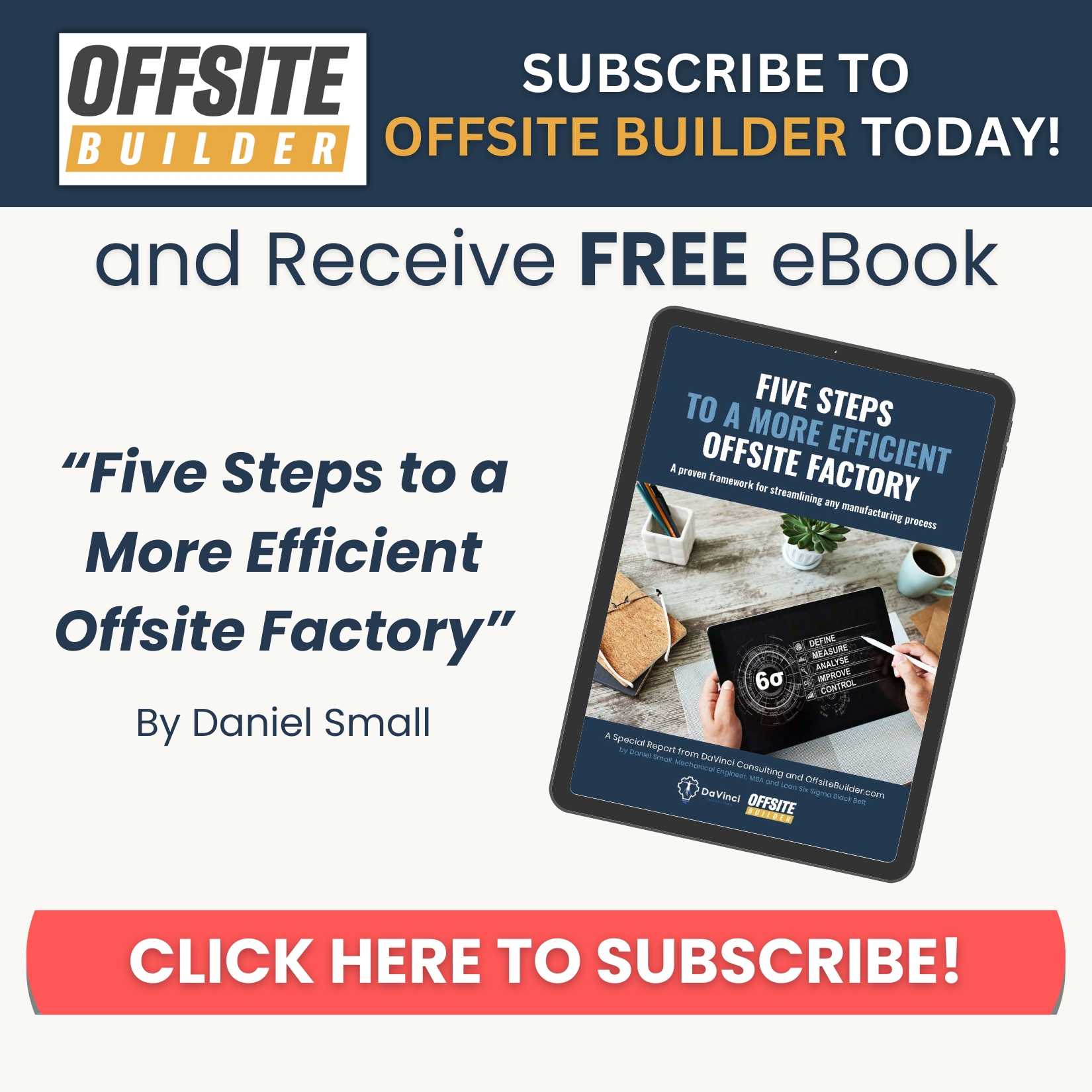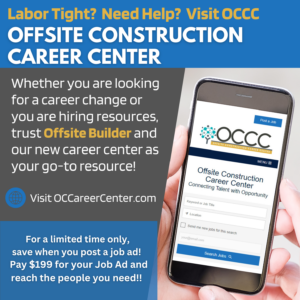Guardian Booth began by serving a focused commercial niche, but it ended up in the housing business by following opportunities.
- The company started with prefabricated guard shacks in New York City, but now sells an array of booth products across the US.
- Guardian recently began putting its expertise to work in the modular housing business.
- A commitment to employees has also helped the company grow its workforce.

There’s a saying among internet entrepreneurs that the riches are in the niches — that is, someone starting a new company would be wise to tailor the product or service to a small yet enthusiastic market, then see what growth opportunities emerge. That approach can also be very effective with prefabricated structures.
Abraham Taub certainly thought it so. Taub is Co-Founder and Partner of Guardian Booth, which was founded in 2014 and is now headquartered in Waynesboro, Pennsylvania. We talked with him about how he started the company by identifying and serving an unmet need in a specific geographical area, and how the company has grown a nationwide customer base and expanded its product offerings.
Seizing an Opportunity
The idea for the company was sparked when Taub was doing some temporary office work for a friend of his who owned a portable toilet rental business in New York City, N.Y. The toilets were often rented by general contractors for workers to use on construction sites.
Taub explains that, along with toilets, those same contractors also often needed a guard shack for security personnel. Typically, these shacks were porta potties with no toilet or sink. Plywood was laid on the floor, and a couple of window openings cut out on the sides.
One day, a client asked why someone couldn’t design a proper guard shack. And that sparked an idea: Why not start a business doing that?
“I had a gap year coming up between my undergraduate studies and medical school. And I had given myself a goal to set up a business that I could put on autopilot while I was in medical school,” Taub recalls. “So, I decided to start a guard shack rental business.”
Taub made the first few guard shacks himself in a corner of his friend’s warehouse. “The plan was that I’d put together a couple of hundred 4 ft. x 6 ft. units and store them in my friend’s yard. His company would rent them out and deliver them, just like they were already doing with the porta potties.”
To gauge demand, Taub called his friend’s toilet rental customers and asked them if they wanted to replace their makeshift guard shacks with properly designed, purpose-built ones. The responses were very encouraging: a lot of them said yes.
Pursuing Growth
Soon, Taub began getting enquiries from customers who wanted to buy booths instead of renting them. He also heard from customers who wanted them in different sizes, such as 6×8 and 8×10.
“So, I hired a group of skilled people to put them together, people who were capable of making them in any size,” Taub says. Eventually, manufacturing operations were taking up too much space in the shared warehouse, so Taub rented a dedicated 15,000 sq. ft. industrial space in New York, and the company manufactured in that location for five years.
During this time, the company also opened a 40,000 sq. ft. manufacturing facility in Juarez, Mexico. The units were shipped across the border to a warehouse in El Paso, Texas and distributed to the Western states from there. Having two US locations made it easier and cheaper to cover the whole of the country, and, as a result, Guardian can offer free shipping.
Although the company started by making guard shacks for construction site security personnel, they now manufacture booths and other small buildings for many different purposes and industries. For example, they make booths for cashiers, parking attendants and ticket vendors; relocatable offices for factories and warehouses; and press boxes for sporting events.
And they just made a move into the housing market. In 2023, Guardian acquired and merged with Homes by Keystone, a modular homebuilder that had been in business for 55 years. Guardian moved out of its New York premises and took over Keystone’s Waynesboro, Pa. plant.
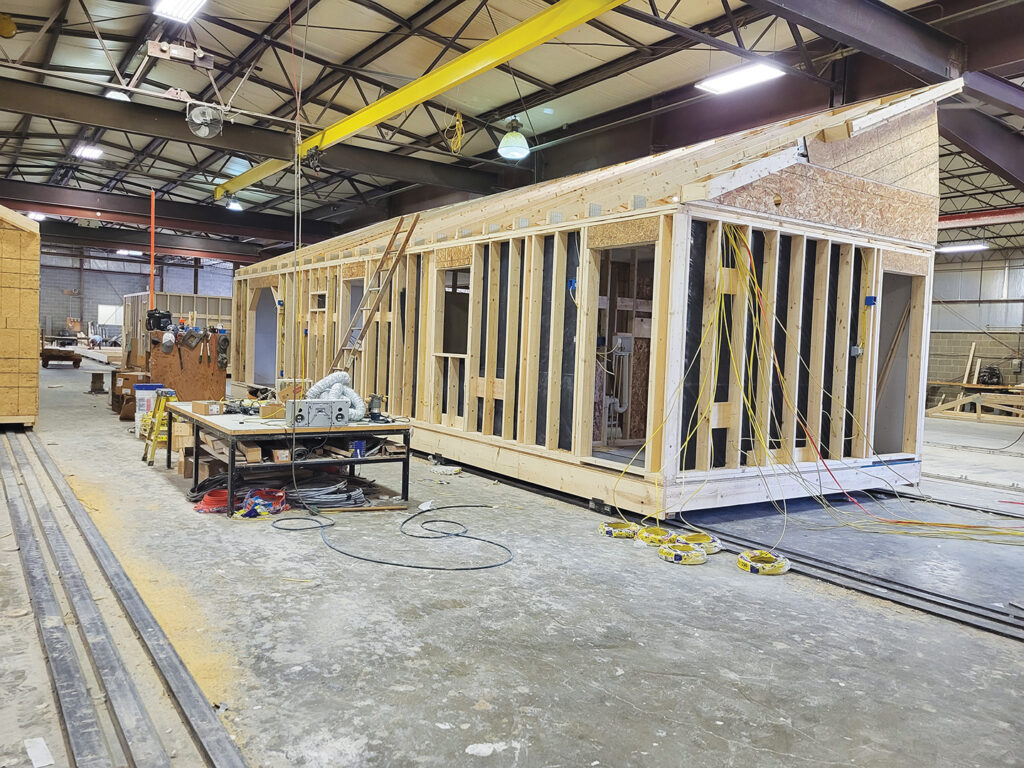
Prioritizing Employees
A priority with the merger was maintaining each company’s workforce. “When we bought Keystone, they had 15 employees working at their plant,” says Taub. Guardian brought its employees from New York to Waynesboro, retained the Keystone employees and also hired additional people.
They now have 65-70 people working at the Waynesboro plant and they’re running three shifts. “Two of them are the traditional first and second shifts — from six in the morning to three in the afternoon, and from three in the afternoon to midnight. But we’re also running a third crew that works 7am to 5pm every day.”

Taub admits it’s not easy to hire and retain workers, but says the company is doing everything it can, including paying an hourly rate that’s competitive in the local market. “After three months, we’ve retained 100% of the Keystone employees and have given them all a pay raise to bring them up to Guardian Booth’s standard pay rates,” Taub says.
But attracting and retaining workers isn’t just about the dollar amount per hour, he says. “We also offer great benefits. For example, we pay close to 100% of medical, dental and vision coverage. Employees contribute something like $5 per paycheck.”
The manufacturing of buildings is also intrinsically more satisfying than other factory work, in Taub’s view. “For the typical factory worker, the job is often boring, partly because they don’t get to see the fruits of their labor in a finished product. But if you work in a factory manufacturing modular homes and prefabricated booths, you come in in the morning and there might just be a base frame. But, then there’s a floor, the walls go up, the roof goes on, the interior is fitted out. By the end of the day, they can see progress and feel accomplished. They can see they’ve achieved something.”

A B2B Business Model
Since its founding, Guardian Booth has sold to businesses rather than individuals. Although they are willing to sell some homes to individual homeowners, that won’t be their primary focus.
“Our model has always been B2B because you never have individuals buying a booth for their houses,” Taub says. They have decided to take a B2B approach with the homes they manufacture by selling to developers, builders and dealerships. The company is also open to other arrangements, such as white labelling their homes to other modular manufacturers who need extra capacity.
Taub says, “It’s in the DNA of our company to be innovative and to adjust to market needs.”
Zena Ryder writes about construction and robotics for businesses, magazines, and websites. Find her at zenafreelancewriter.com. Photos courtesy Guardian Booth.
